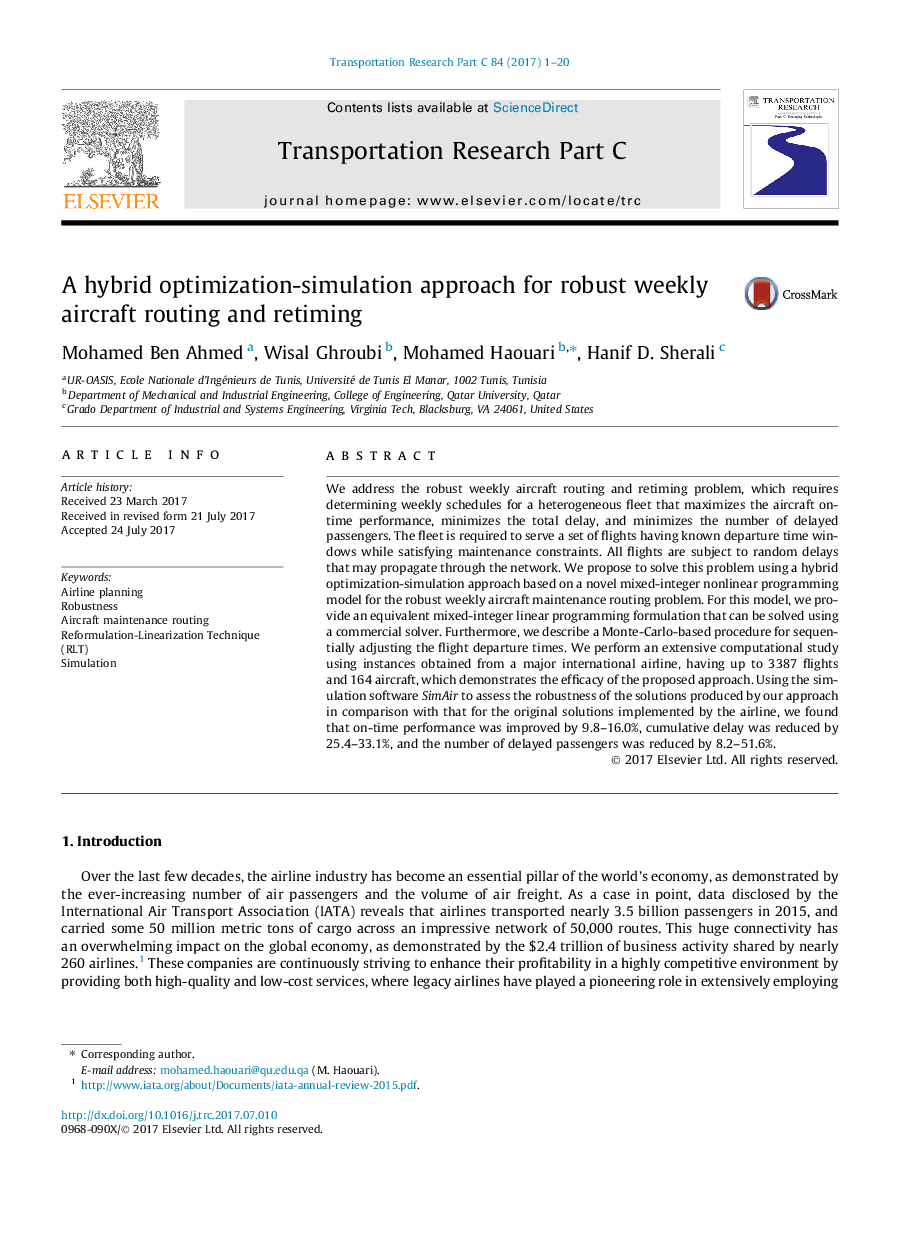ترجمه فارسی عنوان مقاله
یک رویکرد شبیه سازی بهینه سازی هیبریدی برای مسیریابی و ریتیمینگ قوی هواپیماهای بدون سرنشین هفتگی
عنوان انگلیسی
A hybrid optimization-simulation approach for robust weekly aircraft routing and retiming
| کد مقاله | سال انتشار | تعداد صفحات مقاله انگلیسی |
|---|---|---|
| 95840 | 2017 | 20 صفحه PDF |
منبع

Publisher : Elsevier - Science Direct (الزویر - ساینس دایرکت)
Journal : Transportation Research Part C: Emerging Technologies, Volume 84, November 2017, Pages 1-20

